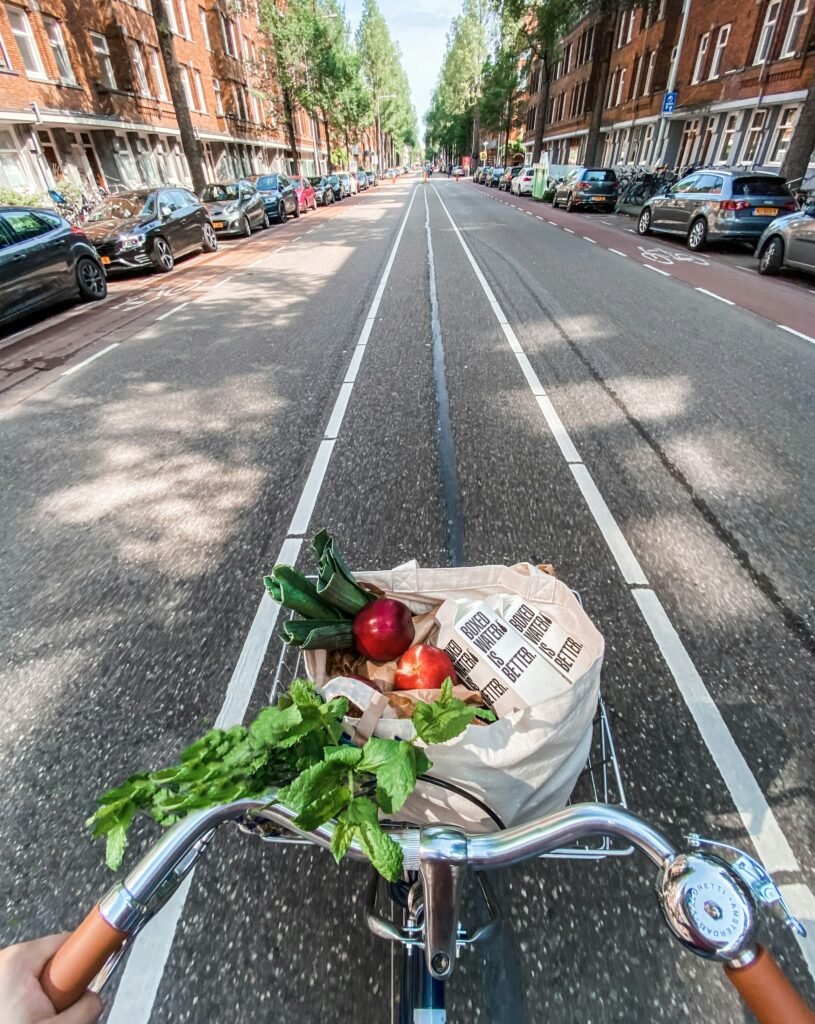Achieving Long-term Sustainability in Alligator Farming
Alligator farming has gained significant attention in recent years due to its potential economic benefits and conservation efforts. In order to ensure long-term sustainability in this industry, it is crucial to implement sustainable practices. By focusing on responsible breeding, proper nutrition, and habitat preservation, alligator farms can contribute to the conservation of these iconic reptiles while also supporting local communities. This article explores the importance of achieving long-term sustainability in alligator farming and highlights key practices that can make a positive impact on both the environment and the industry’s profitability.
1. Conservation of Natural Habitats
Preserving Wetland Ecosystems
Preserving wetland ecosystems is crucial in ensuring the long-term sustainability of alligator farming. Wetlands provide essential habitats for alligators and support a wide range of other plant and animal species. By conserving wetlands, we protect the natural balance of these ecosystems and maintain the necessary conditions for alligators to thrive.
Maintaining Water Quality
Maintaining water quality is essential for the health and well-being of alligators, as well as other aquatic life. Proper waste management, avoiding the use of harmful chemicals, and implementing monitoring systems help ensure that water sources remain uncontaminated. By preserving water quality, we contribute to the overall ecological balance and the longevity of both wild and farmed alligator populations.
Protecting Biodiversity
Biodiversity plays a critical role in maintaining the resilience and sustainability of alligator farming. By preserving and protecting the diverse range of plant and animal species within alligator habitats, we help maintain a healthy ecosystem that supports alligator populations. Conserving biodiversity is not only essential for the well-being of alligators but also for the overall health and functioning of the surrounding environment.
2. Responsible Breeding Programs
Selective Breeding
Selective breeding is a vital aspect of responsible alligator farming. Through selective breeding, farmers can focus on specific traits that are desirable for both conservation reasons and market demand. By carefully choosing breeding pairs based on desired characteristics such as size, temperament, and a healthy genetic background, farmers can maintain and enhance the quality of the alligator population in a sustainable and responsible manner.
Maintaining Genetic Diversity
Maintaining genetic diversity is crucial to ensure the long-term resilience and adaptability of alligator populations. To avoid inbreeding and genetic disorders, it is essential to monitor the genetic profiles of alligators carefully. By diversifying the gene pool through strategic breeding programs, alligator farmers can ensure the population’s overall health and reduce the risk of future genetic challenges.
Avoiding Overbreeding
Overbreeding can lead to an excessive number of alligators, which can strain available resources and compromise their overall welfare. Responsible alligator farming involves carefully managing breeding practices to maintain a sustainable and balanced population. By avoiding overbreeding, farmers can ensure sufficient resources for alligators, reduce the risk of disease outbreaks, and maintain a healthy overall ecosystem.

This image is property of images.unsplash.com.
3. Proper Animal Care and Welfare
Providing Adequate Space
Providing adequate space for alligators is essential for their well-being. Alligator enclosures should be large enough to allow natural behaviors, including swimming, basking, and territorial movements. By providing ample space for alligators, farmers ensure that these animals can exhibit their natural behaviors and live a healthy and fulfilling life.
Ensuring Proper Nutrition and Health
Proper nutrition and healthcare are crucial for the well-being of alligators in farming systems. Ensuring a balanced diet that mimics their natural feeding habits is essential to meet their nutritional needs. Additionally, regular veterinary care, proper monitoring, and disease prevention measures are necessary to maintain the health and welfare of alligators in captivity.
Implementing Enrichment Activities
Enrichment activities help stimulate the natural behaviors and instincts of alligators. Providing them with environmental stimuli, such as hiding spots, toys, and opportunities for social interaction, improves their overall well-being. Enrichment activities also help prevent boredom and reduce stress, contributing to healthier alligators and a more sustainable farming environment.
4. Sustainable Feed and Diet
Using Locally Sourced Feed
Using locally sourced feed reduces environmental impacts associated with transportation and supports local economies. By sourcing feed ingredients from nearby farms or suppliers, alligator farmers decrease their carbon footprint and contribute to the sustainability of their communities. Additionally, local feed sources often have a smaller environmental footprint, reducing the overall impact of alligator farming operations.
Balanced Diet for Alligators
Providing a balanced diet for alligators is essential for their overall health and growth. A balanced diet typically includes a combination of protein, fats, and essential nutrients to meet their dietary requirements. By formulating nutritionally sound diets and avoiding excessive use of unsustainable feed ingredients, farmers can ensure that alligators receive optimal nutrition while supporting long-term sustainability in alligator farming.
Minimizing Food Waste
To minimize waste in alligator farming, it is crucial to carefully measure and allocate feed portions. By avoiding overfeeding and closely monitoring alligator behavior and growth rates, farmers can minimize food waste and reduce the environmental impact associated with excess feed. Proper food management practices not only support the sustainability of alligator farming but also contribute to the efficient use of resources.

This image is property of images.unsplash.com.
5. Efficient Water Management
Reducing Water Usage
Efficient water management plays a vital role in sustainable alligator farming. Implementing water-saving techniques, such as monitoring water consumption, using water-efficient equipment, and employing recirculation systems, helps reduce overall water usage. By minimizing water waste, farmers can conserve this valuable resource and contribute to the sustainability of their operations.
Recycling and Reusing Water
Implementing water recycling and reuse practices further enhances the sustainability of alligator farming. Treating and reusing water from enclosures, filtration systems, and other sources reduces the demand for freshwater and minimizes the impact on local water sources. By incorporating water recycling systems, farmers can reduce their environmental footprint and promote responsible water management.
Managing Water Quality
Maintaining water quality is crucial for the well-being of alligators. Properly managing water sources, including regular testing, filtration, and monitoring, helps ensure that alligators have access to clean and healthy water. By prioritizing water quality, farmers support the overall health and welfare of alligators while minimizing the risks associated with poor water conditions.
6. Waste Management and Recycling
Implementing Effective Waste Management Systems
Implementing effective waste management systems is crucial for sustainable alligator farming. Proper disposal of waste materials, including manure and other byproducts, helps minimize environmental pollution and prevents the contamination of surrounding ecosystems. By adopting efficient waste management practices, farmers contribute to a cleaner and more sustainable farming environment.
Recycling Organic Waste
Recycling organic waste can significantly reduce the environmental impact of alligator farming. By composting or processing organic waste materials, such as uneaten feed and plant matter, farmers can convert them into valuable resources, such as fertilizers or renewable energy. This approach contributes to the circular economy and minimizes waste sent to landfills, supporting the overall sustainability of alligator farming.
Minimizing Pollution
Minimizing pollution is a key aspect of sustainable alligator farming. Implementing pollution prevention measures, such as properly managing chemical usage, reducing runoff, and controlling potential contaminants, helps protect nearby water sources and ecosystems. By adopting responsible practices that minimize pollution, farmers ensure a healthier environment for alligators and the surrounding communities.

This image is property of images.unsplash.com.
7. Energy Efficiency and Renewable Energy
Using Solar Power
Utilizing solar power can significantly reduce the carbon footprint of alligator farming operations. By installing solar panels to generate electricity, farmers can minimize their reliance on fossil fuels and decrease greenhouse gas emissions. Solar power is a renewable and clean energy source that supports the transition to a more sustainable and environmentally friendly alligator farming industry.
Energy-Efficient Equipment
Using energy-efficient equipment is a practical approach to reducing energy consumption in alligator farming. Choosing energy-efficient lighting, ventilation systems, and other farming equipment helps minimize electricity usage and lowers operational costs. By investing in energy-efficient technologies, farmers can contribute to sustainable energy practices while optimizing their operations.
Adopting Renewable Energy Sources
Embracing renewable energy sources, such as wind or hydroelectric power, further advances the sustainability of alligator farming. By exploring opportunities to incorporate renewable energy into their operations, farmers can reduce their reliance on non-renewable energy sources and decrease carbon emissions. Transitioning to renewable energy contributes to the overall sustainability and resilience of the alligator farming industry.
8. Sustainable Business Practices
Promoting Environmental Education
Promoting environmental education and awareness among employees, customers, and the general public is crucial for sustainable alligator farming. By providing information about the importance of conservation, habitat preservation, and responsible farming practices, farmers can help foster an informed and engaged community that actively supports sustainable initiatives.
Supporting Local Communities
Supporting local communities is an integral part of sustainable alligator farming. By partnering with local businesses, sourcing materials and services from nearby suppliers, and contributing to community initiatives, farmers can create a positive social and economic impact. Supporting local communities enhances the overall sustainability and resilience of alligator farming operations.
Ethical Marketing and Consumer Awareness
Ethical marketing and consumer awareness play a significant role in sustainable alligator farming. Transparently communicating farming practices, highlighting conservation efforts, and promoting responsible consumption help educate consumers about the importance of supporting sustainable products. By prioritizing ethical marketing practices, farmers can foster consumer trust and contribute to sustainable consumer choices.
9. Collaborative Research and Development
Partnerships with Scientific Institutions
Establishing partnerships with scientific institutions fosters continuous research and development in alligator farming. Collaborating with researchers and experts in the field enables farmers to stay updated on the latest advancements and best practices. By sharing knowledge and engaging in collaborative research, farmers contribute to the sustainability and improvement of alligator farming practices.
Continuous Improvement and Innovation
Continuous improvement and innovation are essential for the long-term sustainability of alligator farming. By actively seeking opportunities to enhance farming techniques, streamline operations, and minimize environmental impacts, farmers can adapt to changing circumstances and improve overall efficiency. Continuous improvement and innovation support the long-term viability and resilience of the alligator farming industry.
Sharing Knowledge and Best Practices
Sharing knowledge and best practices within the alligator farming community is key to fostering sustainable practices. By engaging in industry conferences, workshops, and online forums, farmers can exchange information, share expertise, and collectively work towards continuous improvement in alligator farming. Sharing knowledge and best practices strengthens the entire industry and contributes to its long-term sustainability.
10. Certification and Standards
Adhering to Certification Programs
Adhering to certification programs ensures that alligator farming meets specific criteria for sustainability, animal welfare, and environmental responsibility. Certifications, such as those provided by the Aquaculture Stewardship Council (ASC), recognize and promote responsible farming practices. By actively seeking and adhering to relevant certifications, farmers demonstrate their commitment to sustainable alligator farming.
Complying with Environmental Standards
Complying with environmental standards set by local authorities and regulatory agencies is essential for sustainable alligator farming. By meeting or exceeding these standards, farmers ensure that their operations have a minimal negative impact on the environment. Compliance with environmental regulations helps protect natural habitats, water sources, and the overall ecosystem.
Transparent Reporting
Transparent reporting of farming practices, environmental impacts, and progress made towards sustainability goals is crucial for building trust with stakeholders. By openly sharing information and reporting on key metrics, farmers can effectively communicate their efforts and provide accountability. Transparent reporting promotes transparency, fosters dialogue, and encourages continuous improvement in alligator farming practices.
